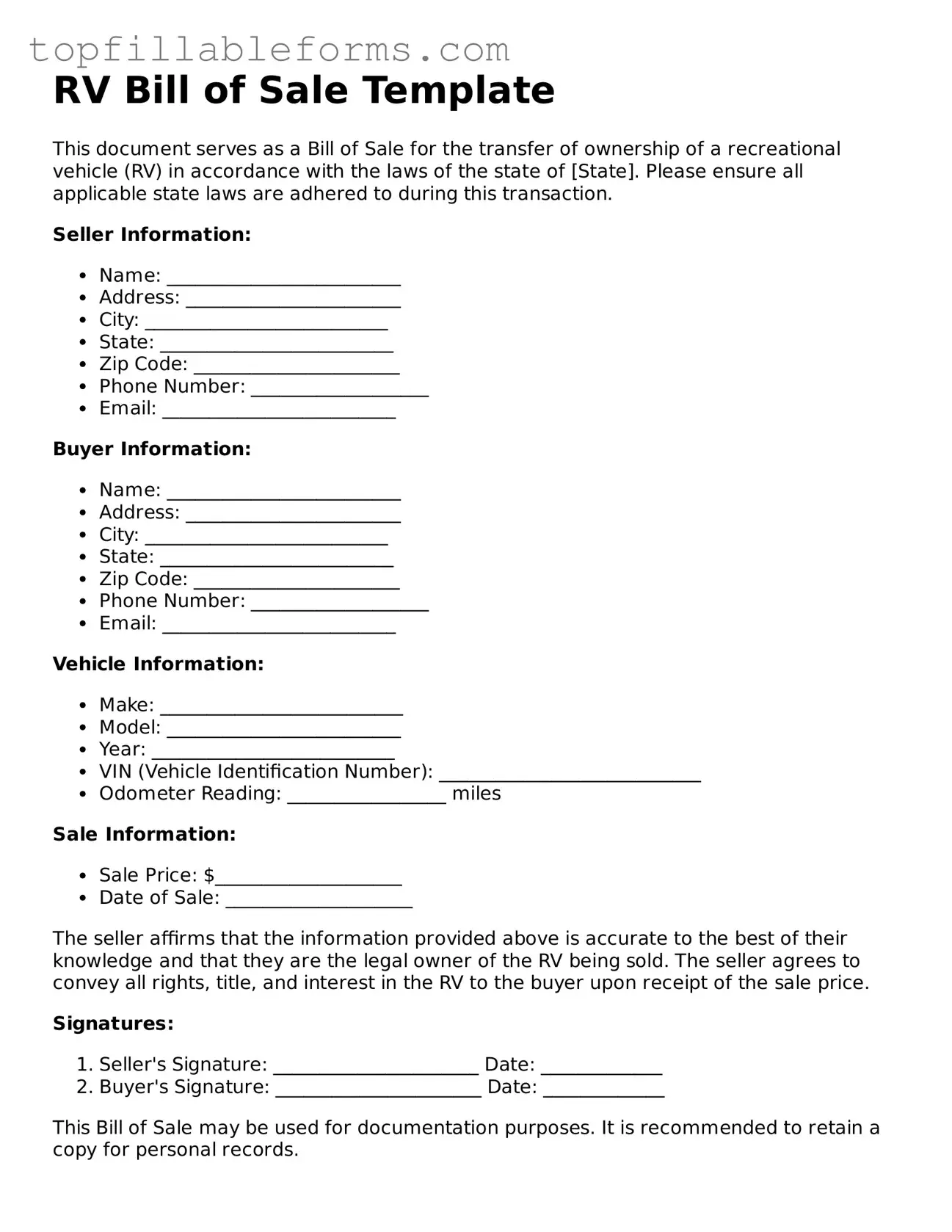Free RV Bill of Sale Form
An RV Bill of Sale is a legal document that records the sale and transfer of ownership of a recreational vehicle. This form serves as proof of the transaction between the buyer and the seller, detailing essential information about the RV, including its make, model, and identification number. Having a properly completed RV Bill of Sale can protect both parties and ensure a smooth transfer of ownership.
Open RV Bill of Sale Editor Here

Free RV Bill of Sale Form
Open RV Bill of Sale Editor Here
Finish the form now and be done
Finish your RV Bill of Sale online by editing, saving, and downloading fast.
Open RV Bill of Sale Editor Here
or
▼ PDF File
